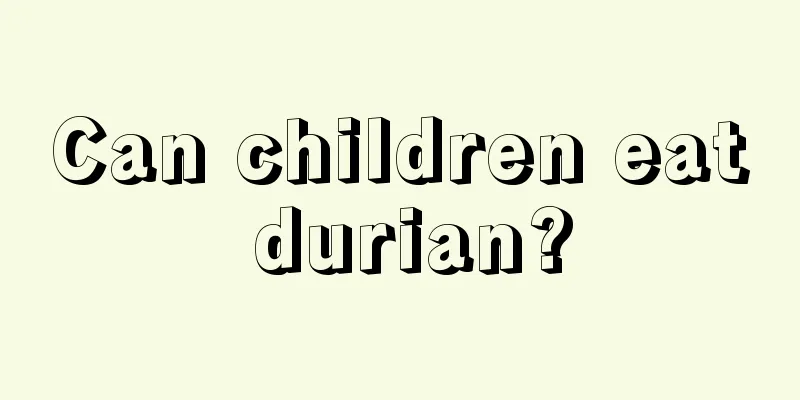What to do if your child has a picky eater

|
Many people are prone to picky eating during their early childhood. Because children are unaware of the negative effects of picky eating on themselves, they tend to only eat what they like, and not even eat a bite of the food they don’t like. Parents must help their children change their picky eating habits in a timely manner, tell their children about the negative effects of picky eating, and encourage them to eat more foods that they don’t usually like. Diversified food tastes The development and maturation of the sense of taste requires stimulation of the taste buds through foods of various flavors. The more types of food a baby tries and accepts within one year old, the wider the range of food he can accept in the future; conversely, the less likely he is to accept the taste of food he has never experienced before. This is the main reason for partial and picky eating. It is recommended to diversify and let your baby try more flavors of food as much as possible. Try new foods and new flavors repeatedly Babies are naturally resistant to new foods. They lick, bite, and chew new foods, reluctantly accept them, then spit them out, and swallow them again after being fed many times. This is called "fear of new foods". Out of children’s own protection, new foods usually take 10-15 attempts (or even 20 times) before they are accepted. However, most parents give up after a few unsuccessful attempts, mistakenly believing that their baby doesn’t like or accept the new food. It is recommended that parents be patient and try feeding their baby new foods multiple times in small amounts. Parents should set a good example in terms of diet As mentioned earlier, babies gain early taste experiences from their mother’s breast milk. In fact, as early as during pregnancy, the fetus begins to gain early taste experiences from amniotic fluid, which all affect the baby’s taste preferences. Therefore, pregnant women and nursing mothers should not be partial or picky eaters. Starting from infancy, parents should set an example for their babies and not be picky about food. In particular, they should not show their likes and dislikes about food, such as talking about not liking a certain food or having a strange expression when eating. When feeding new foods, use pleasant expressions and words to encourage your baby to try. Nowadays, there are many children with picky eating habits. They prefer to eat high-calorie foods such as fried foods, cakes, and drinks, and do not like to eat fruits and vegetables. If this continues for a long time, they will become overweight, obese, and have a bad temper, which will affect their learning and social skills. In severe cases, it will cause some chronic diseases, so parents must pay attention. |
<<: What to do if your child has anorexia and picky eating
>>: What are the causes of picky eating in children?
Recommend
What should I do if my child has intestinal gas?
There is often a certain amount of gas in the hum...
What should I do if my child has a fever and is having convulsions?
Children usually don't pay attention to their...
One year old baby always cries at night
The baby’s schedule is different from that of adu...
Why is the white of the baby's eye yellow?
The yellowing of the whites of the eyes of newbor...
Children always complain of foot pain
If a child always tells adults that his feet hurt...
What to do if your baby keeps sneezing and having a runny nose
If the baby keeps sneezing and having a runny nos...
Six-month developmental standard for premature infants
When a premature baby reaches six months old, its...
What is the reason for thinning hair in babies?
Thinning hair is a common problem among adults, a...
What calcium tablets are good for 8-year-old children?
We all know that the most indispensable thing for...
What to do if your 4 month old baby has diarrhea
Diarrhea is a very common symptom, and the causes...
Should newborns take medicine before or after feeding?
After being born, newborns are very susceptible t...
What should I do if my baby sucks his fingers?
For babies, sucking their fingers is as carefree ...
What to do if baby has poor appetite in hot weather
The baby's digestive function is weak, and th...
Children with rhinitis and runny nose
Because children have low body resistance, they a...
Is your child cold and sweating all over?
Under normal circumstances, the human body does n...









